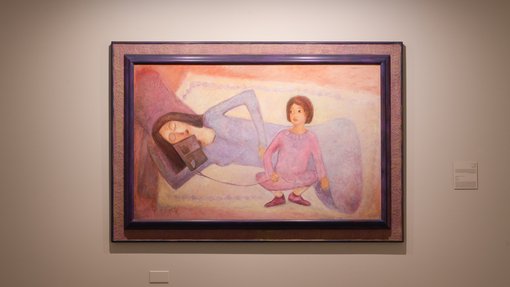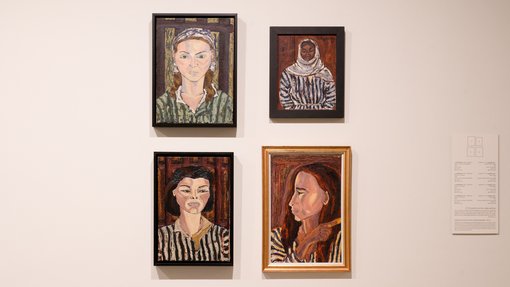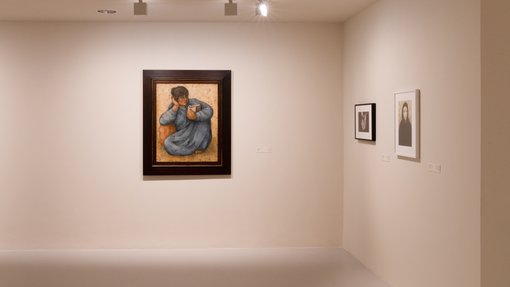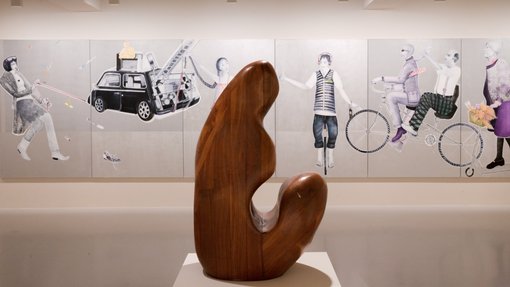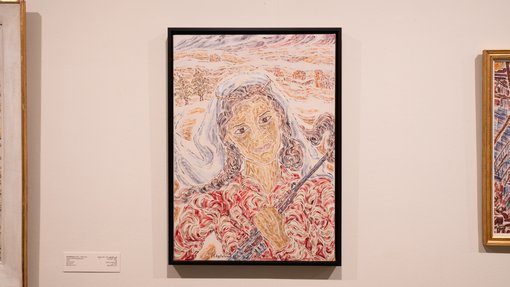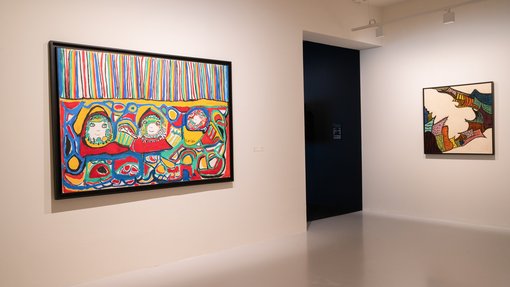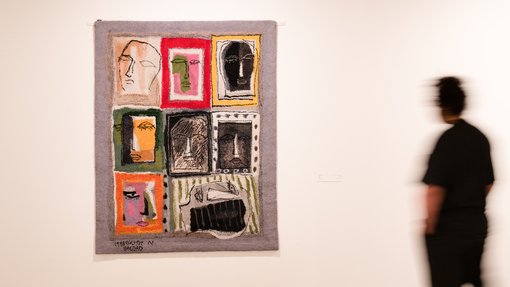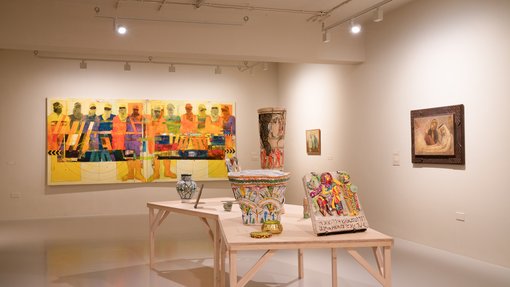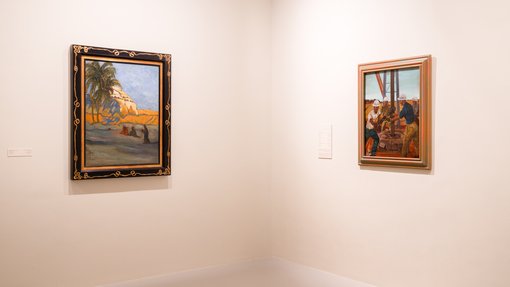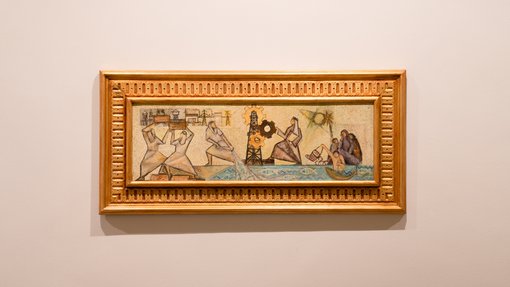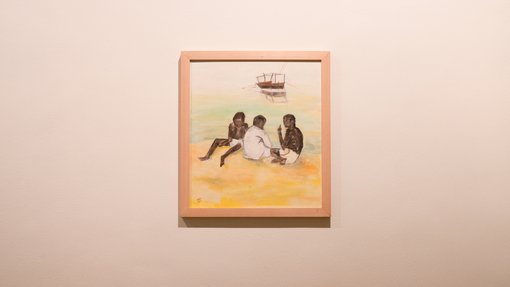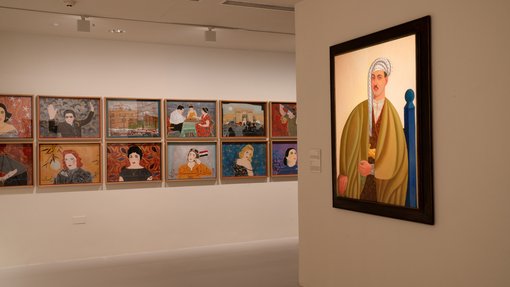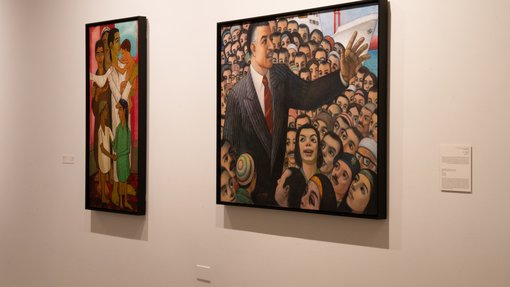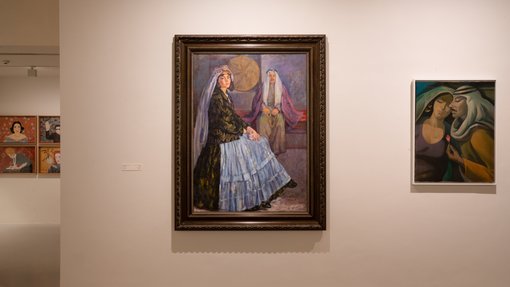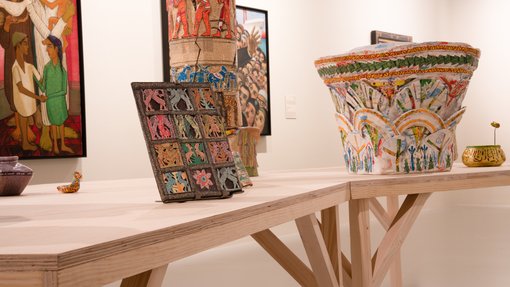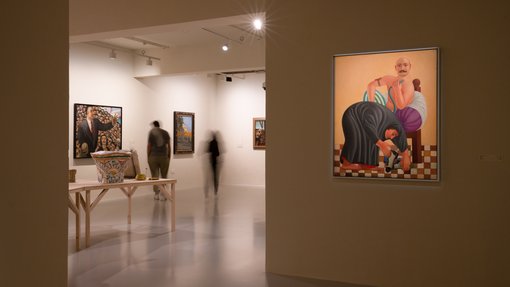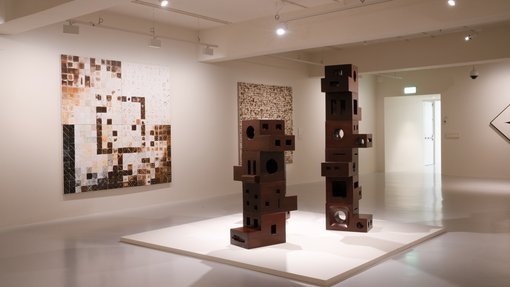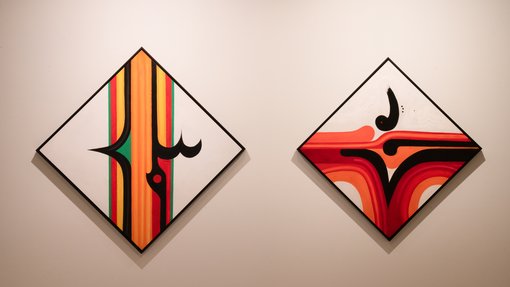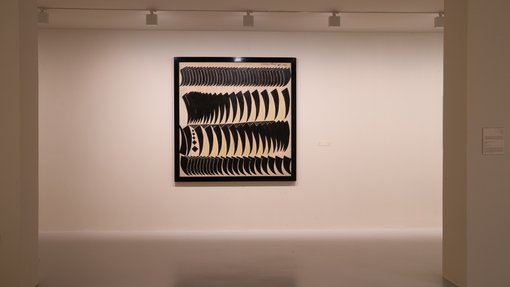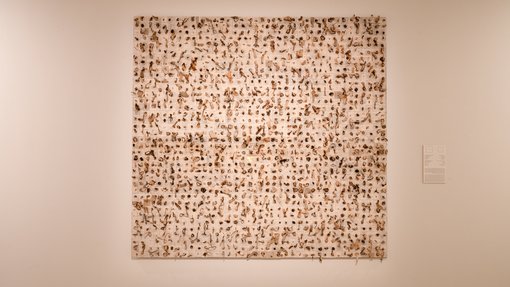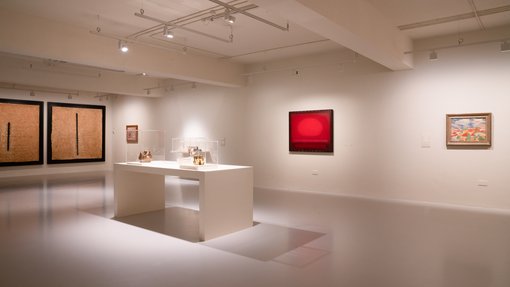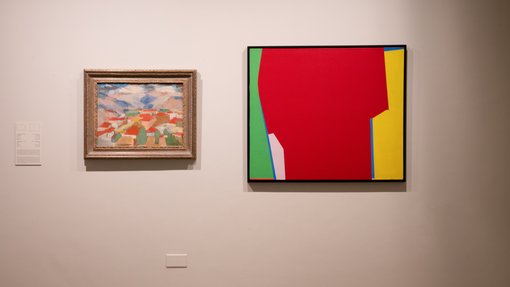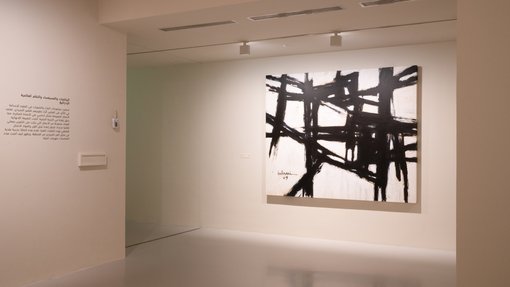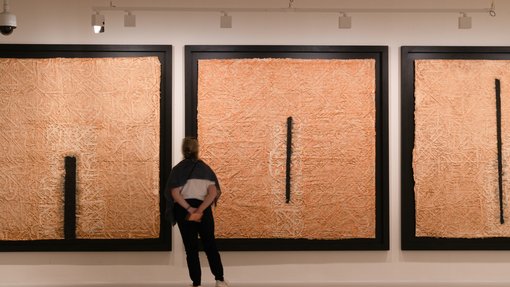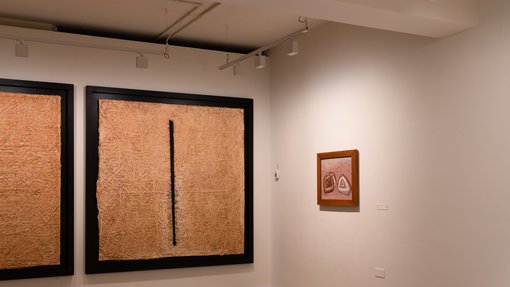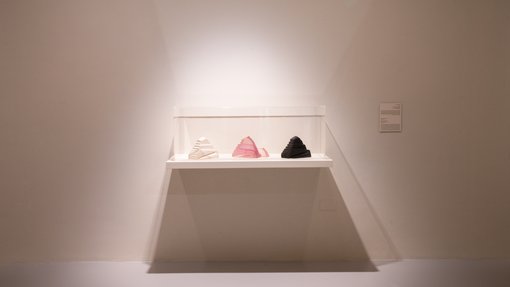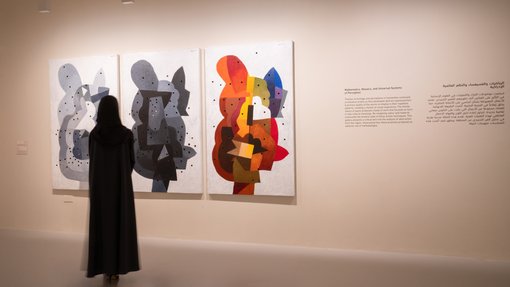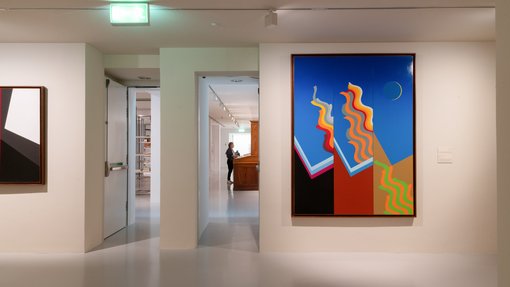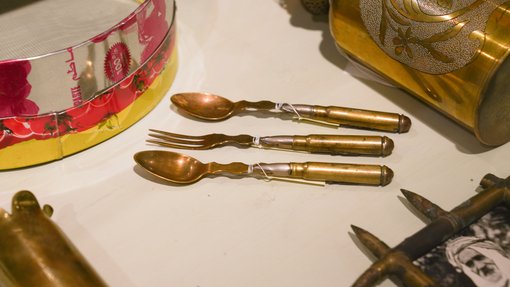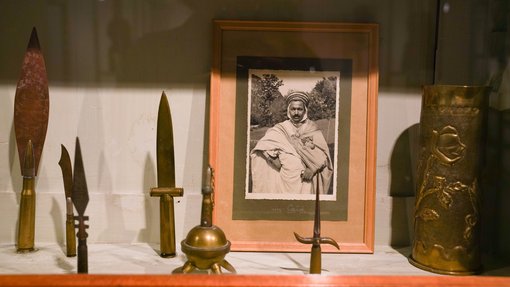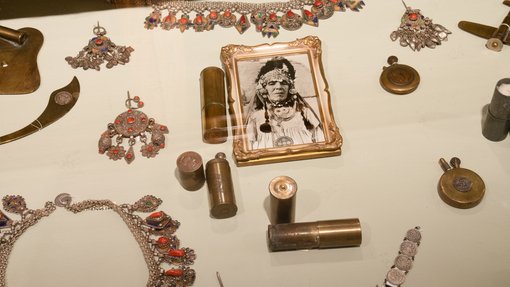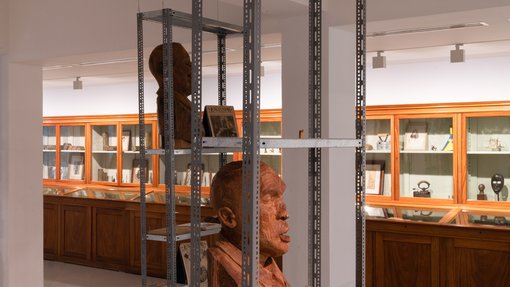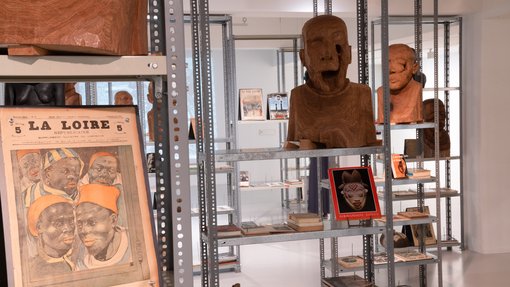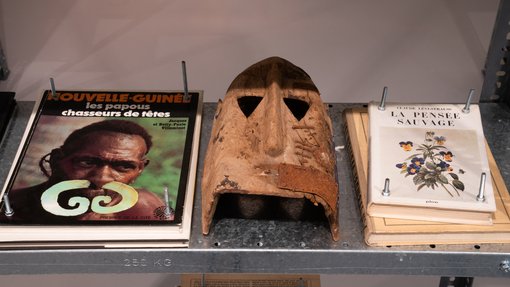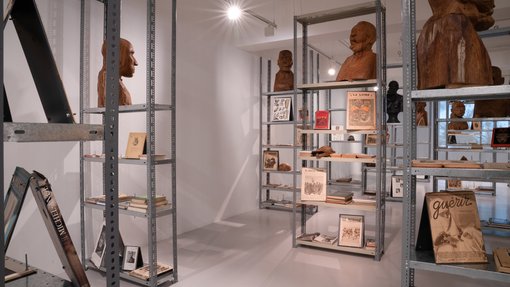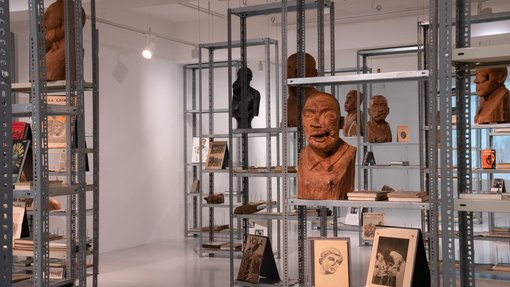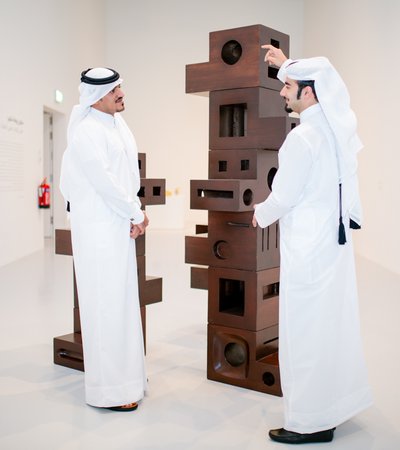Major themes of aesthetics and politics of change and progress within multiple modernities and histories of art and society are addressed: the rise of nation states; colonial struggles and post-independence projects of reconstruction; the development and influence of the oil industry; the birth of new urban centers and cities; and aspirations to progress in a global, hyper digitalized and networked era.
Many of these works address the movement of human civilization through rapidly changing models in history. For example, the paintings and sculptures by Mahmoud Mokhtar, Hafidh Droubi, and Jawad Selim create new visual tendencies inspired by ancient civilizations. Works by Chaibia, Inji Efflatoun, Paul Guiragossian, Faiq Hassan, and Issa Saqer are portraits of society, while the work of Seif Wanly, Abdullah al-Muharraqi, and Hamed Owais depict social and industrial progress.
Traditional signs, craft and calligraphy are appropriated by Ahmed Cherkaoui, Chaouki Choukini, and Parviz Tanavoli. Abstracted geometric forms, as well as architecture, science, and technology are active in the work of Saloua Raouda Choucair, Jilali Gharbaoui, and Mohamed Melehi. Hassan Sharif, Faraj Daham, and Yousef Ahmad use natural materials, found objects, and local languages to express strong statements on the shifting economic and ecological environments of the UAE and Qatar.
Artists, poets, and artworks are witnesses to histories and changing perspectives. The display considers the production of art driven by colonial and Post-Independence geopolitics, as well as pan-African and pan-Arab cultural movements from the late 1950s to transnational connections of the Generation 00 artists working in the 2000s’, who made strong statements preceding the Arab Spring and current revolutionary changes around the world. The political and artistic positions of Farid Belkahia, Ibrahim El Salahi, and Hossein Zenderoudi contribute to the reinvention of visual languages that rupture Eurocentric canons. Contemporary conceptual works by Manal AlDowayan, Hayv Kahraman, and Wael Shawky question historical narratives and interrogate struggles for freedom.
Looking beyond linear histories of art, Mathaf gives value to critical thinking and artistic production across multiple modernities highlighting the emergence of new tendencies in art over the last hundred years that is connected to the transformation of social and ecological landscapes.
The display of Mathaf’s permanent collection proposes reading a multitude of approaches and statements on the making of art. It is conceived with a curatorial approach that looks at art histories and discourses of major tendencies and movements in dialogue with pan-Arab cultural groups and international avant-gardes. Shaped by diverse sociopolitical contexts and conditions of production, the museum and the collection contribute an original perspective to local and global conversations on art and society.
Galleries 1–7: Temporary Exhibitions
Mathaf's temporary exhibitions present internationally acclaimed modern and contemporary artists. These exhibitions introduce artists whose work plays an important role in opening conversations on the social and political shifts in the history and contemporary life of Qatar, Middle East and Arab world, to investigate the way societies are structured, and interrogate the role art plays in our local and regional contexts.

